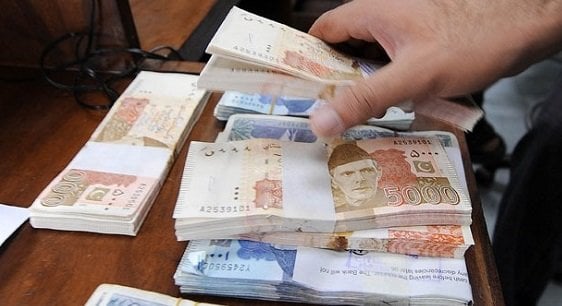 Move to prevent money laundering and illegal transfers, says senior state bank official
Move to prevent money laundering and illegal transfers, says senior state bank official
Dubai: The Pakistan government will soon make it mandatory for all expatriates from the country to open bank accounts back home to be able to send remittances, an official has said.
The move will curb illegal transfers and money laundering.
Pakistan government will make it compulsory for all Pakistanis working and living abroad to open bank accounts in Pakistan to help them ensure smooth money transactions through legal banking channels and to curb money laundering,” said Syed Irfan Ali, executive director of the State Bank of Pakistan.
Speaking to Gulf News on the sidelines of the Pakistan Remittance Summit that concluded in Dubai on Friday, Ali said the State Bank of Pakistan and the Ministry of Overseas Pakistanis have finalised the plan and the deadline for opening mandatory bank accounts will be announced soon.
He said the move would not only curb illegal remittances of money but also help overseas workers remit money at the fastest possible time.
The banks would also give incentives to account holders for using legal channels to send remittances, Ali said.
The two-day Pakistan Remittance Summit was organised by the State Bank of Pakistan in collaboration with Pakistani banks and money exchange houses in the UAE to apprise them of the Pakistan Remittance Initiative (PRI) and new ways of home remittances through legal channels.
Replying to a question whether the UAE’s implementation of VAT from January have any impact on remittances, Ali said that the tax would, in fact, give a boost to remittances. “We expect remittances from the UAE to increase significantly after VAT is introduced as all companies and businesses will have to do documentation and it will involve more working with banks. VAT will make transactions more transparent,” he said.
Ali said the PRI has brought down illegal many transfers by 34 per cent in the recent years as the initiative focuses more on the use of technology to ensure fast transfer of money which had been a huge challenge in the past. “People want to remit money in the fastest possible time and we are taking steps to meet this demand,” said Ali.
He also urged the Pakistani banks and money exchange houses in the UAE to upgrade their systems to ensure a smooth transaction of remittances.
Ali revealed that banks are now liable if there is a delay in delivery of money sent by overseas Pakistanis. “Customers can demand money — delay charges of 65 paisas per Rs1,000 per day — from banks if there is a delay in receiving money. They can also register complaints with the State Bank if they want to do so.”
Explaining the benefits of sending money through legal channels, Ali urged expatriates to use these channels as they are risk free and also they will not face any inquiries for their assets back home if they are bought with legally transferred money. The Pakistan government has already started inquiries against people living beyond their means and have asked them to provide proofs of the sources of their assets.
More than eight million Pakistanis live abroad. Of these, 1.4 million live in the UAE and 1.9 million in Saudi Arabia. Expatriate remittances form 6 per cent of the country’s GDP.
According to the State Bank of Pakistan records, Pakistanis remitted more than $19.91 billion in the 2015-16 fiscal year but it recorded a decrease of three per cent to $19.3 billion this year.
“Remittances to Pakistan will increase to $30 billion a year if everyone uses legal channels,” said Ali, adding it means that there are still a large number of people who are using illegal channels for money transfers.
The maximum remittances of $6 billion in 2016 were from Saudi Arabia whereas $4.5 billion was remitted from the UAE to Pakistan. This year, the remittances from Saudi Arabia decreased to $5.5b and to $3.5 billion from the UAE.
Currently, more than 250 million migrants from across the world remit more than $500 billion a year to their countries for a total fee of $16 billion.
Lodging complaints
Expatriates can lodge complaints in case of a delay in remittances reaching their bank accounts by calling +9221-111-727-774
or sending email to complaints@pri.gov.pk
Gulf News